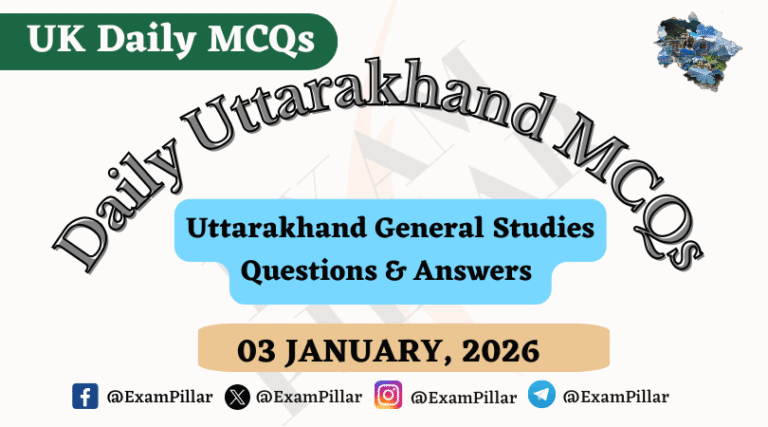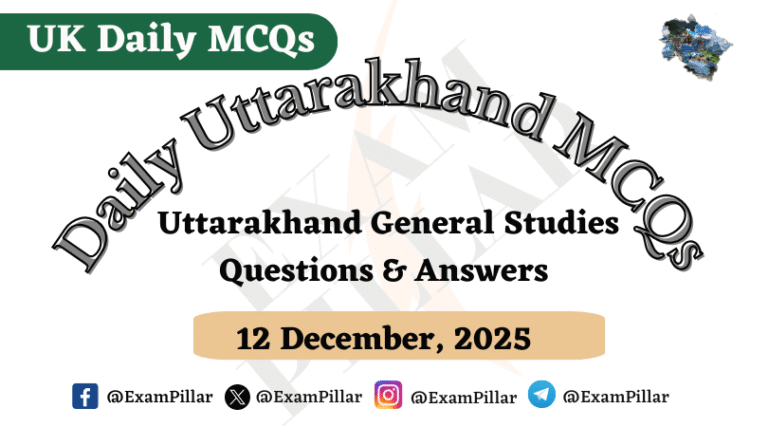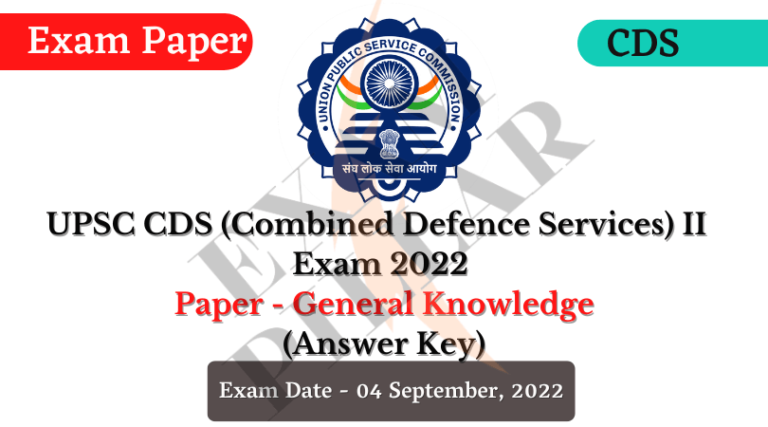The Exam Pillar brings you the Daily MCQs program for examinations conducted by the Uttarakhand Public Service Commission (UKPSC) and the Uttarakhand Subordinate Services Selection Commission (UKSSSC). This program provides candidates with objective study materials tailored to the exam format of the Uttarakhand Public Service Commission and the Uttarakhand Subordinate Services Selection Commission.
Daily UKPSC / UKSSSC MCQs : Uttarakhand
01 November, 2025
Q1. In which year were five copper human figures discovered in Nainipatal?
(A) 1989
(B) 1998
(C) 1999
(D) 2000
Click To Show Answer/Hide
Explanation: In 1999, five copper human figures were discovered in Nainipatal. These figures serve as evidence of the artistic and religious beliefs of that time.
Q2. Who conducted the excavation work at Moradhwaj?
(A) M. Markham
(B) Henwood
(C) Dayaram Sahni
(D) Yashodhar Mathpal
Click To Show Answer/Hide
Explanation: The excavation at Moradhwaj was carried out in 1887 by M. Markham. During this excavation, several artifacts related to the Copper and Stone Ages were discovered.
Q3. Who studied the temples of Uttarakhand?
(A) Dayaram Sahni
(B) K. P. Nautiyal
(C) Shivprasad Dabral
(D) Yashwant Singh Kathauch
Click To Show Answer/Hide
Explanation: In 1919–20, Dayaram Sahni studied the temples of Uttarakhand. Later, in 1921, he discovered the Harappan Civilization, due to which he is regarded as one of the eminent scholars of Indian archaeology.
Q4. From which place is the mention of four Ashwamedha Yajnas found?
(A) Devidhura
(B) Barwala or Jagatgram
(C) Dhangal Village
(D) Haripur
Click To Show Answer/Hide
Explanation: The details of four Ashwamedha Yajnas are found from Barwala or Jagatgram. It also mentions a Gupta period king named Shivbhavani, reflecting the Vedic traditions of that era.
Q5. When were eight copper plates discovered from Bankot (Pithoragarh)?
(A) 1986
(B) 1989
(C) 1998
(D) 1999
Click To Show Answer/Hide
Explanation: Eight copper plates were discovered from Bankot in Pithoragarh district in 1989. These copper plates provide evidence of the administrative and religious activities of that period.





Leave a Reply